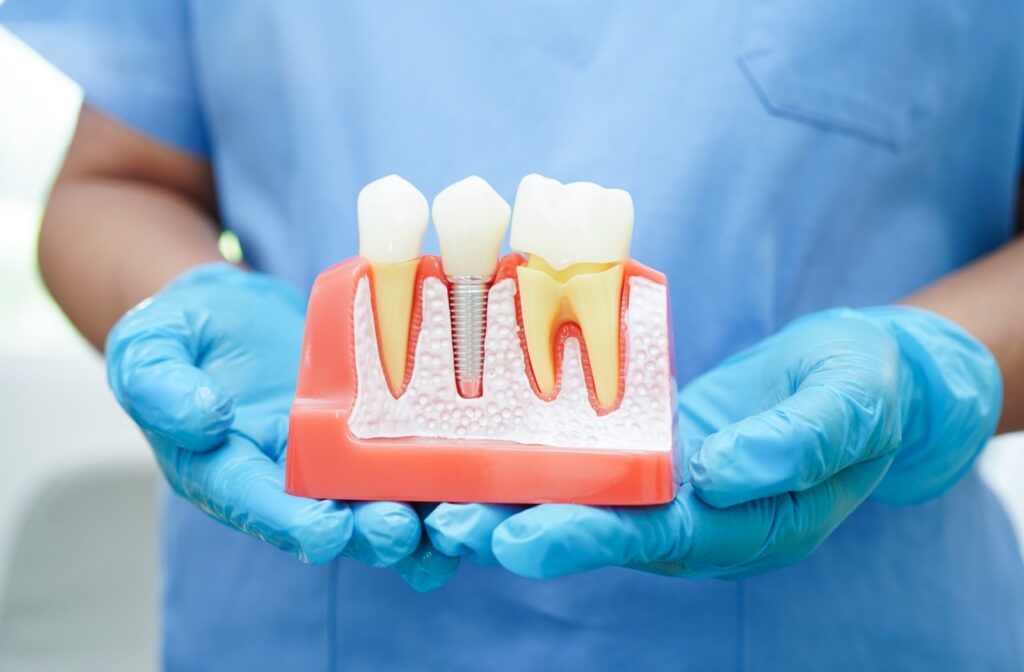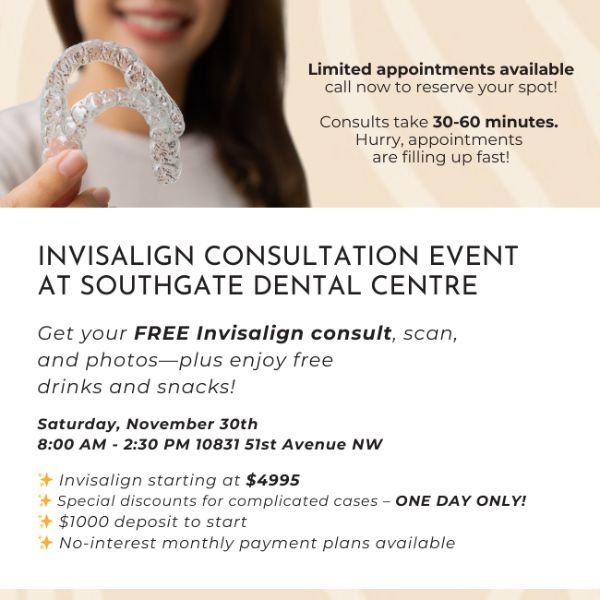What should you do when you or your child have a chipped tooth? What are your options? We get lots of calls about chipped teeth, especially from parents of kids aged 3–5, and we are here to answer your questions. Generally, chipped teeth aren’t immediate dental emergencies, but you should still see us as soon as possible. In some cases, it may be necessary to provide prompt care.
You have lots of options for fixing chipped teeth, depending on the specific type of damage. We can help you consider all your choices—from fillings and implants to partial dentures—and help you make the right decision for your teeth.
We’re also here to provide guidance and advice whenever you need it. Helping you learn more about what to expect with chipped teeth is important to us, and that’s why we always take the time to answer any questions you may have.
Q: How Do Dentists Decide Which Treatment to Recommend for Cracked Teeth?
A: The most important factors, generally, are how big is the crack and how far does it penetrate? If the crack penetrates into the nerve of the tooth, then it’s paramount that you get root canal therapy first, before restoring the tooth. You cannot put a filling on top of a crack that enters the nerve of the tooth, or you could end up with pain all the time.
If it’s a small chip, we can smooth it off using special sanding instruments. If it’s a bigger chip, we can often just put a little bit of bonding material on it. If it’s a really large chip, you may end up having to have a full-fledged filling. And, if a whole section of the tooth is chipped off, you could need a crown.
Q: Does Fixing a Chipped Tooth Require Needles?
A: Repairing a small chip is often a very minimal treatment, and most of the time, it won’t require any needles. Many chipped teeth can be repaired without local anesthetic because it’s just the surface of the tooth that needs to be treated, and you typically don’t have to do much drilling.
Q: Is a Chipped Tooth Serious, & Can It Fall Out?
A: The seriousness also depends on how large the chip is, but many smaller chips can be treated in a single visit.
It’s very unlikely that a chipped tooth will fall out. A chipped tooth is usually strong and tight in the socket and has become chipped from biting down on something hard. Because it’s so strong and secure, it’s not likely that it will fall out. However, you should still seek treatment for a chipped tooth because it can get worse over time.
Q: What Does a Chipped Tooth Look Like?
A: Most people realize they have chipped a tooth first with their tongue before looking at it, so knowing whether you have a chipped tooth is often more about what it feels like than what it looks like.
Chipped teeth have a sharp edge. When left long enough, that sharp edge won’t get smooth, but your tongue can get used to it. Even if your tooth has a sharp edge, after a couple of weeks, you might not be able to tell which tooth was chipped. So, it’s best to get the tooth looked at by a dentist sooner rather than later.
Q: What Should You Do If You Have a Chipped Tooth?
A: If you have a chipped tooth, you should schedule an appointment with a dentist. In the meantime, you can try putting some candle wax on it. The candle wax can stick on your tooth for short periods of time and protect your tongue.
Q: Can You File Down a Chipped Tooth?
A: Filing a tooth down a chipped tooth at home isn’t a great idea because you may make the chip larger when you’re trying to sand it. It’s better to visit a dentist.
Q: How Do You Relieve Pain from a Chipped Tooth?
A: Candle wax can help prevent pain by shielding your tongue and cheek. If your tongue or cheek do get cut up or agitated, we may recommend over-the-counter painkillers as well.
Q: What Are the Options for Fixing a Chipped Tooth?
A: The 6 options we often recommend for fixing a chipped tooth are:
- Dental fillings and bonding
- Veneers
- Crowns
- Tooth extraction
- Dental implants
- Partial dentures
The option we recommend for your teeth will vary depending on how severe the damage is, how far it has spread, and your current oral health and hygiene.
Option 1: Dental Fillings & Bonding
Dental fillings and bonding are for minor cracks and chips. They are very easy to do and can be done in 1 appointment. Chips are mostly repaired with a composite filling material.
Option 2: Veneers
Veneers are generally only done on front teeth and generally only when you’ve chipped the incisal edge, which is the tip of your tooth. At our clinic, we generally recommend porcelain veneers because they can last a very long time—much longer than just bonding with a composite filling.
You can also have composite veneers done, but they tend to stain because they are porous and they generally don’t last as long as porcelain veneers.
Option 3: Crowns
Crowns are done when the structural integrity of a tooth is compromised, and there are concerns that a filling would only be a temporary solution because more of the tooth could just continue to fracture off. A crown is a more permanent solution, and getting a crown is generally a 1-appointment or 2-appointment procedure.
A crown can be very aesthetically pleasing. It can be made to match the colour of your teeth. Or, if you like the look of gold, that’s also still one of the best materials to use for crowns. You can even mix it up with white crowns in the front and gold in the back.
Option 4: Extraction & Surgery for Severe Tooth Damage
If your tooth is cracked and the crack goes below the gumline or into the pulp chamber and would require root canal therapy, we may recommend tooth extraction.
It can be very difficult to restore a fractured tooth when the damage goes below the gumline—especially if it goes below the bone. So, you’re often much better off to just get the tooth out and look at your options after you get it out.
Option 5: Dental Implants
Dental implants are one of the most successful treatments dentists do—probably the most successful treatment. They tend to last decades—and can last longer than crowns. Implants work so well that we’ve gone from doing root canal therapy on many teeth to just going straight to dental implants. Dental implants require a number of appointments, though, and the cost can be expensive.
Implants are comparable to doing a bridge for a missing tooth, which is a process that involves crowning a tooth on one side, crowning another tooth on the other side, and putting a false tooth in between. When you compare both options, the prices are often similar, but dental implants are generally much more successful, last longer, and are easier to floss.
Option 6: Partial Dentures
Partial dentures are removable. They’re something you might see a hockey player wearing when they lose teeth because you can take them out before a game and put them back in after.
We typically recommend partial dentures for the following people:
- For patients who may feel that the cost of an implant is too high.
- For patients who are older and may not benefit as much from the longevity of an implant.
- For patients who may have poor dental hygiene and may be losing more teeth in the future. Because you can keep adding teeth to a partial denture, you can often avoid higher costs for replacing additional teeth in the future when you have one.

Q: Will a Tooth with a Tiny Chip Grow Back?
A: Unfortunately, a chip never grows back—never ever. But that doesn’t mean there isn’t anything you can do to fix it. Many of the options we have talked about above may be worth considering based on the size and type of damage to your tooth.
Q: Is It Ever Too Late to Fix a Chipped Tooth?
A: It really isn’t ever too late, but what we recommend for fixing it can depend on how long the chip has been left unaddressed. This comes back to the information we discussed above, where a chip that has spread to the nerve of the tooth or below the gum line may be more serious—but even in those cases, it can often still be treated.
Even weeks, months, or years later, we can still treat—and often fix—chipped teeth.
Q: What If a Baby Tooth Is Chipped?
A: If it’s a baby tooth with a tiny chip, we may say, “Don’t do anything because that tooth could fall out in 6 months anyway, so there’s no need to spend any money on it.” unless it’s really bothering your child, in which case we can smooth the chip off.
Some baby teeth fall out when children are 6 years old, and some are there until you’re 12. So, the urgency for fixing a chipped baby tooth can depend on which tooth it is. In many cases, it’s important for baby teeth to remain as placeholders for adult teeth.
The exception is for back teeth. If a child’s back tooth has chipped, it’s often because the tooth has decayed, and in those cases, we generally say you should come in quickly because that chip could cause a toothache.
Q: When Should You Speak to a Dentist About a Chipped Tooth?
A: You should call your dentist as soon as possible, describe which tooth you’ve chipped, describe your symptoms, and, if possible, take a picture with your phone that you can send to your dentist. With that picture, we can generally give you a good estimate of treatment costs and let you know if you should come in right away.
In fact, you can call us with any dental issues you might be experiencing or send us a picture of other issues, and we would be happy to take a look and provide a recommendation for what you should do.
Contact us today at Southgate Dental Centre to ask us more about chipped teeth or any other dental issues you may be experiencing. We are always happy to speak with you and ready to help.



